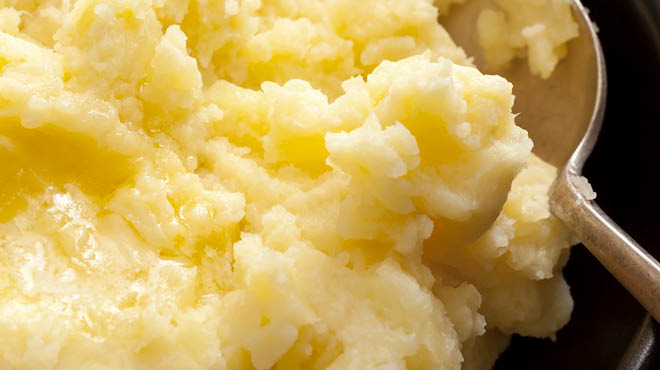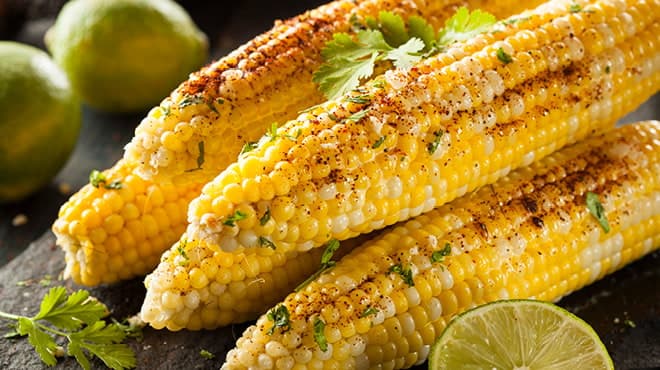Recent Posts
-

-
 Patient StoriesA lifesaver saved: An EMS veteran’s journey from rescue to recoveryNovember 14, 2025
Patient StoriesA lifesaver saved: An EMS veteran’s journey from rescue to recoveryNovember 14, 2025 -

It's OK to say 'yes' to potatoes

Native to South America, potatoes are root vegetables and a dietary staple in many parts of the world. In recent years, low- or no-carb diets have become increasingly popular, leading people to avoid eating potatoes. However, potatoes can have a place in your meals, especially when prepared in a health-conscious way.
A tasty gift
The ancient Incas were cultivating this versatile tuber thousands of years ago. Potatoes made their way to North America in the early 1600s when the governor of the Bahamas sent a potato as a gift to the governor of Virginia. But it wasn't until Thomas Jefferson served potatoes at the White House that they gained popularity.
The concern
And the rest, as they say, is history. By 2023, potatoes — in all their forms — were the most-consumed vegetable in the U.S. According to the Department of Agriculture, potatoes are most commonly eaten as potato chips at home and as french fries when eaten at restaurants.
How potatoes are prepared and what they're eaten with may be the real culprits in potatoes getting a bad reputation. It may seem like common sense, but eating a lot of fried foods like chips and french fries can lead to added calories and unhealthy weight gain. Also, people who eat large amounts of potatoes tend to consume more butter, red meat and sodas.
It's true that potatoes are high in starch or carbohydrates, the nutrients that cause spikes in blood sugar. But pairing them with foods high in protein, fiber and unsaturated fats can slow digestion and lead to a steadier release of glucose into the bloodstream.
Wealth of micronutrients
In addition to carbohydrates — a needed energy source for your body and brain — potatoes contain a wealth of micronutrients. They're a good source of vitamins, minerals and fiber. As a bonus, potatoes are low in calories, contain no fat or cholesterol, and are sodium-free. They're high in vitamin C and potassium and are a good source of vitamin B6. A medium potato, about 5.5 ounces, contains only 145 calories.
Saying "yes" to potatoes
Energy, micronutrients, versatility and just plain deliciousness make the case for potatoes to become part of a healthy diet. That's especially true when they're paired with foods high in protein and fiber and prepared in ways that capitalize on their zero-fat content.
These two recipes are a tasty place to start:
Low-calorie potato salad
1 pound potatoes, diced, boiled or steamed
1 large onion, chopped (1 cup)
1 large carrot, diced (1/2 cup)
2 ribs celery, diced (1/2 cup)
2 tablespoons minced fresh dill or 1/2 tablespoon dried dill
1 teaspoon ground black pepper|
1/4 cup low-calorie mayonnaise
1 tablespoon Dijon mustard
2 tablespoons red wine vinegar
Combine dill, pepper, mayonnaise, mustard and vinegar in a small bowl, set aside. Combine potatoes, onions, carrots and celery in a large bowl. Spoon the dressing over the vegetables and toss until well coated. Refrigerate before serving.
Nutrition for 1 serving (3/4 cup): 77 calories, 14 grams carbohydrates, 2 grams fiber, 127 milligrams sodium, 1 grams total fat, 2 milligrams cholesterol, 1 grams protein, 2 grams total sugars
Roasted potatoes with garlic and herbs
3/4 pound small (2-inch) white or red potatoes
4 cloves garlic
2 teaspoons olive oil
2 teaspoons chopped fresh rosemary
1/8 teaspoon salt
1/4 teaspoon ground black pepper
2 teaspoons butter
2 tablespoons chopped fresh parsley
Heat oven to 400 F. Lightly coat a large baking dish with cooking spray. In a large bowl, combine the potatoes, garlic, olive oil, rosemary, salt and pepper. Toss until the potatoes are well coated with oil and spices. Arrange the potatoes in a single layer in the baking dish. Cover with a lid or aluminum foil, and bake for 25 minutes.
Remove the covering. Turn potatoes and bake, uncovered, until they're soft and slightly browned, about 25 minutes. Transfer to a serving bowl, mix with butter and sprinkle with parsley before serving.
Nutrition for 1 serving (about 2/3 cup): 104 calories, 15 grams carbohydrates, 2 grams fiber, 103 milligrams sodium, 2 grams saturated fat, 4 grams total fat, 5 milligrams cholesterol, 2 grams protein, 1 gram total sugars
Recipes by Mayo Clinic staff.
Lizzie Bertrand is a dietitian in Nutrition in St. James, Minnesota.


